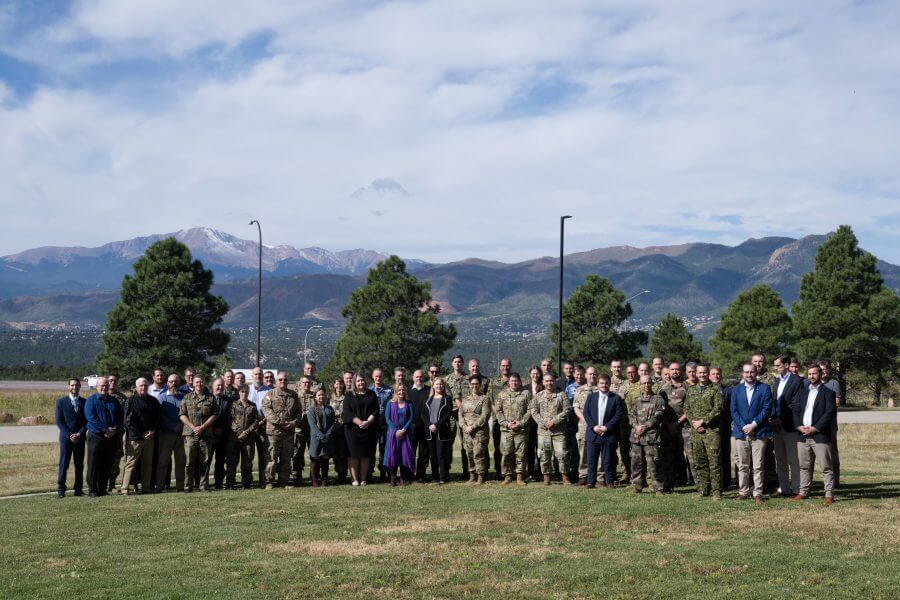The U.S. and its allies are working together on plans to protect their space assets, as the domain will likely be contested in the event of a conflict.
Last month, U.S. Space Command hosted a multinational tabletop exercise with some of America’s key allies. The U.S., United Kingdom, Canada, Australia, New Zealand, Germany, and France “explored areas of opportunity to support the safety and sustainability of space through increased mission assurance and resilience through a multinational force” during a four-day exercise held Sept. 18-22 at SPACECOM’s headquarters in Colorado Springs, Colo., according to a Sept. 29 news release.
SPACECOM did not say what scenarios the exercise envisioned. However, the combatant command did outline some goals of the tabletop exercise, including “increasing intelligence and information sharing, solidifying a standardized multinational command and control structure, and expanding mission sets.”
Allied participants praised the exercise. Canada’s participation represented the country’s “commitment to defend and protect our space capabilities, which includes working with allies and partners to ensure our continuous access to space,” Col. Frédéric Guénette, the senior representative from the Royal Canadian Air Force, said in a statement. The exercise “gave us the opportunity to work with other nations to explore how we can leverage our partnerships to better contribute to the safety and sustainability of the space domain.”
America’s military space leaders have been traveling the globe recently to build partnerships and help bring allies into the fold in an often highly classified domain, noting there needs to be increased information sharing in the future. In July, SPACECOM’s commander Army Gen. James Dickinson conducted a weeklong trip to Europe to strengthen space cooperation with America’s allies on the continent. In May, Space Force Lt. Gen. DeAnna Burt, the deputy chief of space operations for operations, cyber, and nuclear, visited NATO’s Space Center with similar goals. And last month, Chief of Space Operations Gen. B. Chance Saltzman engaged in high-level talks in Japan.
While the Space Force and Space Command are separate entities, both have been looking to bring America’s allies into space training exercises. Back in March, the USSF’s Space Training and Readiness Command (STARCOM) conducted its annual wargame, which brought in the allies that participated in SPACECOM’s recent tabletop exercise as well as Japan.
Some of America’s allies, including the U.K. and France, have set up their own Space Commands. France is also home to NATO’s Space Center of Excellence. During a visit to Washington D.C. last month, the head of the French Air and Space Force, Gen. Stéphane Mille, noted that there is now broad recognition that “there could be attacks” in space in the future.
“The threats are spreading into space,” Mille said in response to a question from Air & Space Forces Magazine. “So this is, of course, what we are thinking about. What we want to do is have different options in space.”
“We are working all together with U.S. SPACECOM to know how to defend all of that, to exchange information on what’s happening in space, because a lot of things are happening in space,” he added. “And we will continue to do [that] because we want to protect the use of space for all peoples.”

